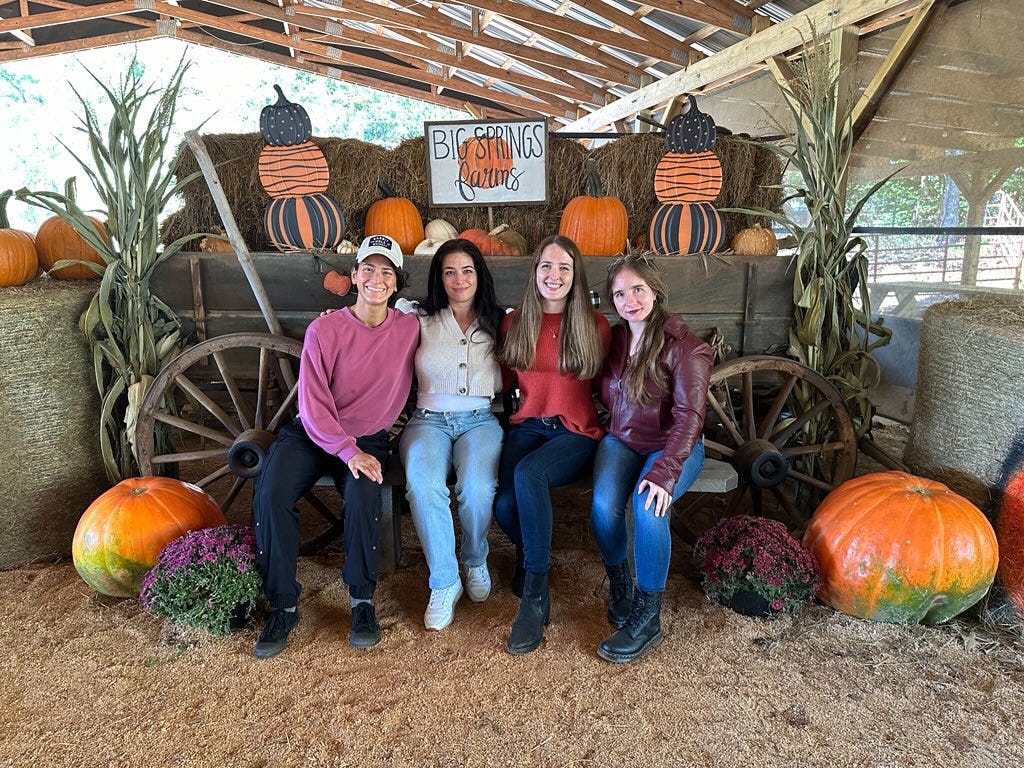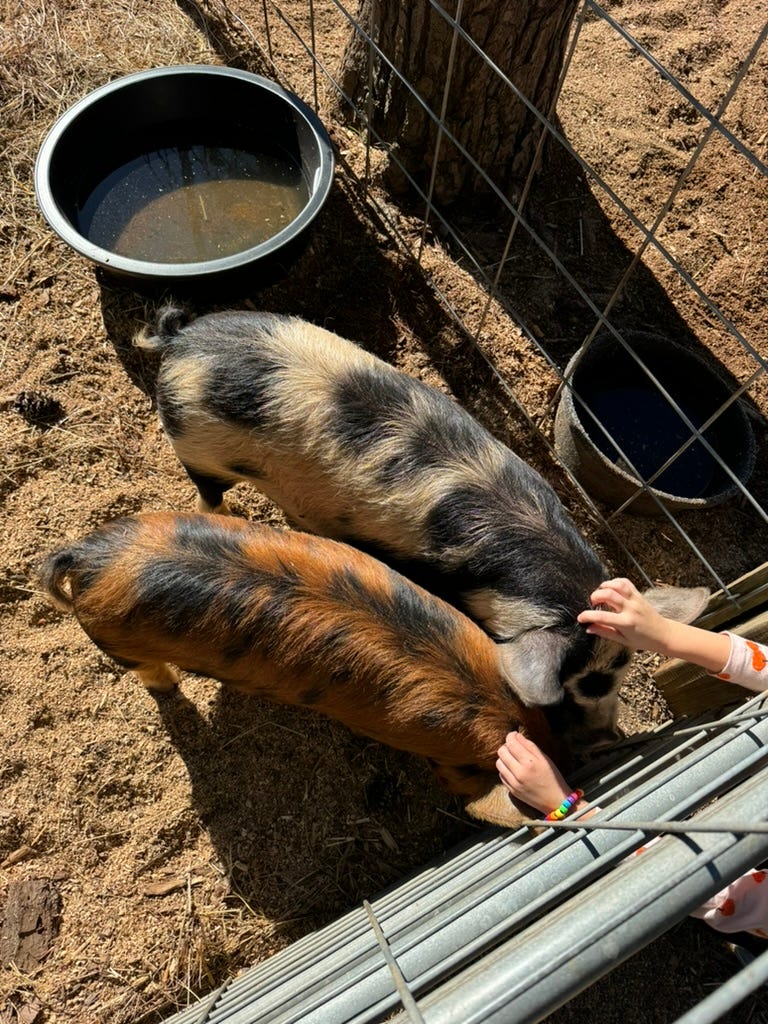Community = Commitment
The thing I miss most about jiu-jitsu is the sense of community--and it's the thing that will really get me back on the mats after injury
Hey everyone!
This week’s note is a little bit late—and short—due to brain fog and hustling through odds and ends before a big international trip. Nevertheless, I didn’t want to let the weekend slide by without checking in.
Recovery-Related Reflections on the High Holy Days
Yesterday was Yom Kippur, and in the usual reflection that comes with the High Holy Days, I was reflecting on the theme of community.

At the beginning of 2024, I made a goal of trying to make more friends in Atlanta. While I knew that finding a temple would have been a quick way to check that box, I still don't have a synagogue that I attend down here in Georgia, largely due to jiu-jitsu, work, and physical viability:
Before I got injured…
On Saturdays, going to train directly overlapped with opportunities for going to shul.
After I got injured…
My job had me effectively on call until 9 or 10PM at night: a working lifestyle not conducive to candle-lightings or Shabbat dinners on Friday evenings.
The instability of my body (until very recently) did not incline me toward putting myself in social situations with strangers in close quarters. Getting in and out of synagogue pews and dodging groups of yentas in after-Shabbat conversation was not my idea of a safe, healthy Saturday morning.
Between Yom Kippur and approaching the six month mark post-op, I’ve wondered whether a part of a faith-based community would help alleviate some of the loneliness I’ve felt during the recovery journey. A hole in my life emerged when my knee got torn apart. I wasn’t prepared for it.1
I've been fortunate that between early 2017 and early 2024, jiu-jitsu gave me a counterbalance to my job in the form of a physical practice and a unique, intimate community. I participate in two writing groups that give me a sense of community, too, helping me scratch a more emotional and intellectual itch and find solidarity in the otherwise-solitary process of writing and editing.
I think my participating in a faith-based community could be valuable for meeting new people in Atlanta, for celebrating holidays among others with similar cultural backgrounds, and for reconnecting with a long-lost sense of Jewish tradition I haven’t had since grade school. But I don’t think joining a synagogue would compare to being able to confidently get back on a mat.
Being away from jiu-jitsu has been painful. Seeing the practice from the sidelines, existing in a gym as an invested observer rather than an active participant, sucks. You can watch as many classes and as much footage as you like, but it’s hard feel like a part of the community when you can’t personally partake in its rituals: the rolling, the sweating, the tapping. Even if an ACL surgery, in some ways, makes me a more credible member of a jiu-jitsu community2
The jiu-jitsu community has a je ne sais quoi that draws me back in and that I miss intensely. It's a community I still want to be a part of. The “gentle art” remains something I still believe that I refuse to live without.
This week, I was talking to a training partner who is also in the process of rehabbing her knee. Recently, she had been wondering what would be "enough" for her.
If she couldn't train at her desired intensity, would "coming back" be enough?
If she could only drill, would that be "enough"?
I had been asking myself the same questions, knowing that I don't need to worry quite yet about a "life without jiu-jitsu" scenario so much as a "define the relationship" conversation I need to have continuously with the sport and what would make a long-term relationship with it satisfying.
Even so, I've already asked myself similar questions:
If you couldn't ever compete again, only train, would that be enough for you? Yes.
If you didn't teach again, and could only be a student again due to the demands of your life and work, would that be enough for you? It would.
Because while I lost weight, got in shape, found a passion, and found a home for my ambition and desire to continuously improve and grow in a practice, the most important thing I found in jiu-jitsu was the community and people. They were more precious than any performance I had, any medal I won, any technique I managed to master.
I've sat on the sidelines enough the last few months to know that writing about jiu-jitsu and watching from the sidelines without being able to train is not enough for me.
So if anyone asks me, "Will you train again?" the answer has to be yes. I don't think bodybuilding or powerlifting or pickleball or whatever other niche sport I choose to pick up or study will scratch the same itch.
I was lucky to fall in love with jiu-jitsu once.3 I don't want to give it up, and don't think I have to.
Amen to that.
Closing Out
Next week—if for no other reason but the fact that there’s only so much you can sleep and watch movies while on a fourteen-hour flight—I’ll be writing my next Substack while on my plane ride to to Japan.
Without spoiling much, the next piece will be on the topic of my first time in Japan (May 2019) and how that trip ties into my jiu-jitsu history and ACL recovery narrative as I revisit “The Land of the Rising Sun.” I hope you’ll like it!
Until next time,
EZ
The hole, specifically. I certainly wasn’t prepared for my knee to be blown apart either though.
Assuming credibility is gained by experiencing one of the sport’s lowest of low experiences: a surgery-requiring injury.
And to fall in love because of jiu-jitsu once—happy anniversary to my husband. We just passed the one-year mark for being legally married in Georgia, and our true wedding anniversary is later this month.




